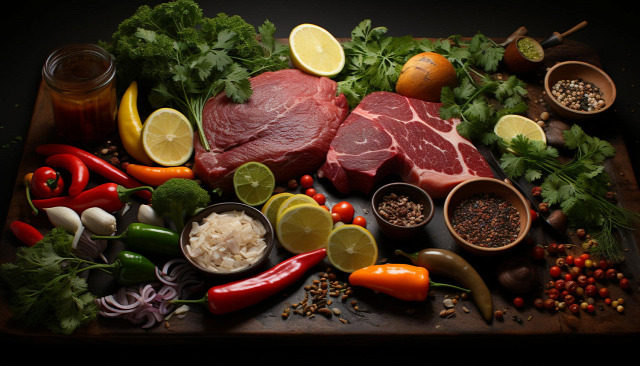
The Cultured Meat Market in Europe is at the forefront of a revolution in sustainable food production. 'Cultured Meat', also known as 'Cell-Cultured' or 'Lab-Grown Meat', represents a significant innovation in the food industry. Produced by culturing animal cells in a lab rather than raising and slaughtering animals, this method promises to address many of the environmental, ethical, and health concerns associated with traditional meat production. As Europe becomes a key player in this emerging market, understanding its dynamics, drivers, challenges, and future prospects is crucial.
Market Overview
"Cultured Meat" is produced by cultivating animal cells in a controlled environment to create muscle tissue that closely resembles conventional meat. The process involves extracting cells from a donor animal, multiplying these cells in a bioreactor, and then stimulating them to develop into muscle tissue. This approach offers a way to produce meat without the need for animal slaughter, potentially reducing the carbon footprint and animal welfare concerns associated with traditional meat production.
The European Cultured Meat Industry is gaining momentum as both consumer demand and regulatory frameworks evolve. Several startups and established companies are investing in research and development to bring cultured meat products to market. The European Union (EU) is also actively engaged in creating a regulatory pathway for cultured meat, which is expected to facilitate its commercialization and adoption.
According to BIS Research, the Europe Cultured Meat Market, which is expected to be valued at $155.9 million in 2024, is anticipated to undergo substantial expansion at a CAGR of 13.99%, reaching an estimated value of $506.6 million by 2033, during the forecast period of 2024-2033.
Key Market Drivers
Environmental Sustainability:
- Cultured meat reduces environmental impact.
- Lower greenhouse gas emissions, land use, and water consumption compared to traditional farming.
Animal Welfare:
- Addresses ethical concerns by eliminating animal slaughter.
- Aligns with demand for humane food production practices.
Health and Safety:
- Reduces risk of contamination with pathogens like Salmonella and E. coli.
- Can be engineered for specific nutritional profiles, offering health benefits.
Consumer Demand:
- Growing interest in sustainable and ethical food options.
- Increased demand for alternatives like cultured meat due to rising plant-based diets and awareness of meat production issues.
Regulatory Support:
- EU developing regulatory framework for cultured meat.
- Safety assessments and approval processes facilitate commercialization in the European market.
Europe Cultured Meat Industry Segmentation
Segmentation 1: By Distribution Channel
- Food Service and Fast Food Chains
- Retail
Segmentation 2: By Product Type
- Poultry
- Beef
- Seafood
- Pork
Segmentation 3: By Country
- Germany
- Spain
- Netherlands
- U.K.
- Rest of Europe
Request a FREE sample research report on Europe Cultured Meat Industry.
Future Market Prospects
The future of the European Cultured Meat Market looks promising, with several trends likely to shape its development:
Technological Advancements: Continued innovation in cell cultivation techniques and bioreactor design will drive down production costs and improve product quality.
Regulatory Clarity: The establishment of a clear and supportive regulatory framework will facilitate the commercialization and adoption of cultured meat products in the FoodTech industry.
Increased Investment: Growing investment from both public and private sectors will accelerate research and development, helping to overcome current challenges and expand market opportunities.
Consumer Education: Efforts to educate consumers about the benefits of cultured meat will play a crucial role in increasing acceptance and driving demand.
Key Market Players and Competition Synopsis
The companies highlighted were chosen based on inputs from primary experts and an analysis of company coverage, product portfolio, and market penetration.
Some of the prominent companies in this market are:
- Mosa Meat
- Meatable
- Cubiq Foods
Also Read: Global Cultured Meat Market
Conclusion
The Europe Cultured Meat Industry represents a transformative shift in food production, offering solutions to environmental, ethical, and health challenges associated with traditional meat. With strong drivers such as sustainability, animal welfare, and consumer demand, coupled with ongoing advancements and supportive regulatory frameworks, the European market is poised for significant growth. By addressing challenges related to production costs, regulatory hurdles, consumer acceptance, and scaling up, the industry can fully realize its potential and contribute to a more sustainable and ethical food system.


